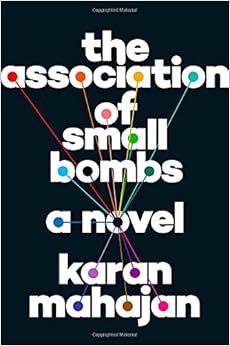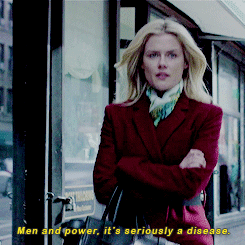Or, that time I read a book about male violence right after a rapist in Stanford got a six-month jail sentence because a longer sentence would negatively impact his life and prospects.
I felt intense frustration with The Association of Small Bombs, for reasons that are probably more to do with reading it in proximity to other infuriating things than the book’s actual merits. So let me say up front that I read this book when I was already angry, and that I had the specific expectation that it would be about the aftermath of violence for the people affected by that violence. 70% of it was about that, and even the 30% that was about the people doing the violence avoided so many of the tropes of terrorism stories that it feels particularly churlish of me to attack this book for this thing, when there are so many other books and movies and TV shows that are doing the same thing much less thoughtfully.
However, I make a concerted effort to avoid those media, and I didn’t know to avoid this book.

To say that The Association of Small Bombs attempts to understand male violence is probably to do it a significant injustice; or at least, to dispute that this is a worthwhile project is to do the book an injustice. Mahajan himself lived near to the site of a “small” bombing that killed thirteen people in Delhi when he was a child, and he wanted to understand what these bombings are in the lives of those affected by them, and what they are intended to be by those who create them. It’s not unfair, is it, to want to understand that? Mahajan doesn’t default to easy answers, religious fundamentalism and terrorist violence as a response to poverty or humiliation or Western powers doing this or that.
Except I am always asked, I am asked again and again and fucking again, I am incentivized by the threat of violence to put myself in the minds of people who choose to do that violence, and to feel empathy for them. I say “people” because it sounds less inflammatory, but of course what I mean is men: men who do the violence, men who want to help me understand the minds of men who do this violence. The secret is always that men do violence because the alternative is that they do nothing and feel helpless, and they can’t live with that feeling of helplessness.
Thank you, but I don’t need lessons in what it feels like to feel helpless in the face of forces that are stronger than me and that care about my feelings and experiences not at all. My life is that lesson. Brock Turner is that lesson. I find your conclusion inadequate. The helpless anger that women live with every day because that’s the price of admission for us to live in this world, and what else? Because if there’s nothing else — if it’s just another man who decided to hurt people because he couldn’t figure out what to do with his feelings — then don’t come asking me to understand his motives for doing violence. I understood already and I decided it wasn’t enough.

In goddamn fucking particular, I am fed up with being asked to imaginatively identify with the men who commit violence while the barest of lip service is paid to the interiority of the women in their orbit. You know how sometimes there are tropes that have lasted so long and been so damaging that you kinda have to retire them for a while? Like how we just need to place a ten-year moratorium on killing TV lesbians? I’d like a break from the glass-shattering fury that consumes my heart every time I read any iteration of the worst story in the whole world, i.e., Once upon a time, a man turned to violence because a woman he wanted to fuck wouldn’t fuck him.
Mahajan isn’t telling a straight-ahead version of this story, and the man who sets the (spoilers) second bomb of the book does it for a constellation of reasons, some petty and some idealistic. But this is the one that Mahajan chooses to highlight in the moment of the explosion:
A few seconds later, the bomb opened with a seismic roar. Hundreds of people lay on the ground. From the shop came only silence. Ayub — thrown to the ground, rolling, sliding — thought: Tara will hear me now.
As a lady reading that story for the fuckteenth time, the corollary to it remains crystal goddamn clear: If you had but fucked this person, think of how many lives could have been saved. We are not saying it was your responsibility, it’s just that this devastating violence could have been avoided if, for a few minutes, an insignificant amount of time in the grand scheme of things, you’d agreed to take one for the team and fuck this guy.
And it doesn’t matter that the author doesn’t believe this corollary and would never endorse it, just like it doesn’t matter that the showrunners of a dozen-plus shows this year don’t believe lesbians deserve death rather than happy endings. If you choose a story that has been used, and continues to be used, to hurt us — the story that when men are denied access to sex, they have nowhere to turn but violence — don’t act shocked and affronted when we grow tired of it, this story that reduces us to outlets for male feelings. We are not just our bodies; there are minds inside us too. Shit like this hurts to read:
Was [9/11] really economic? . . . He was convinced this could not be the case. . . . Killing others and then yourself is the most visceral experience possible. Atta must have felt himself full of sexual hate for the people piled high in the towers, bodies in a vertical morgue. He saw the opening between the two towers as a vagina into which to shove the hard-nosed dick of the plane. Sitting at the controls, his curly hair tight on his skull, eyes rubbery, underslept, blackly circled, he must have seen someone appear at the window and look at him — a woman, maybe, a blond American woman. At that moment he got an erection. At that moment he slammed into her alarmed face.
An economic motive is insufficient, but a sexual one would explain everything? Why? Can I see your receipts on that? Or if you don’t have receipts, then please fucking stop with this. Stop asking me to live inside the heads of men who think this way about my body. Stop reproducing this narrative that positions sex and violence along the same axis, as if it’s inevitable to think this way.
